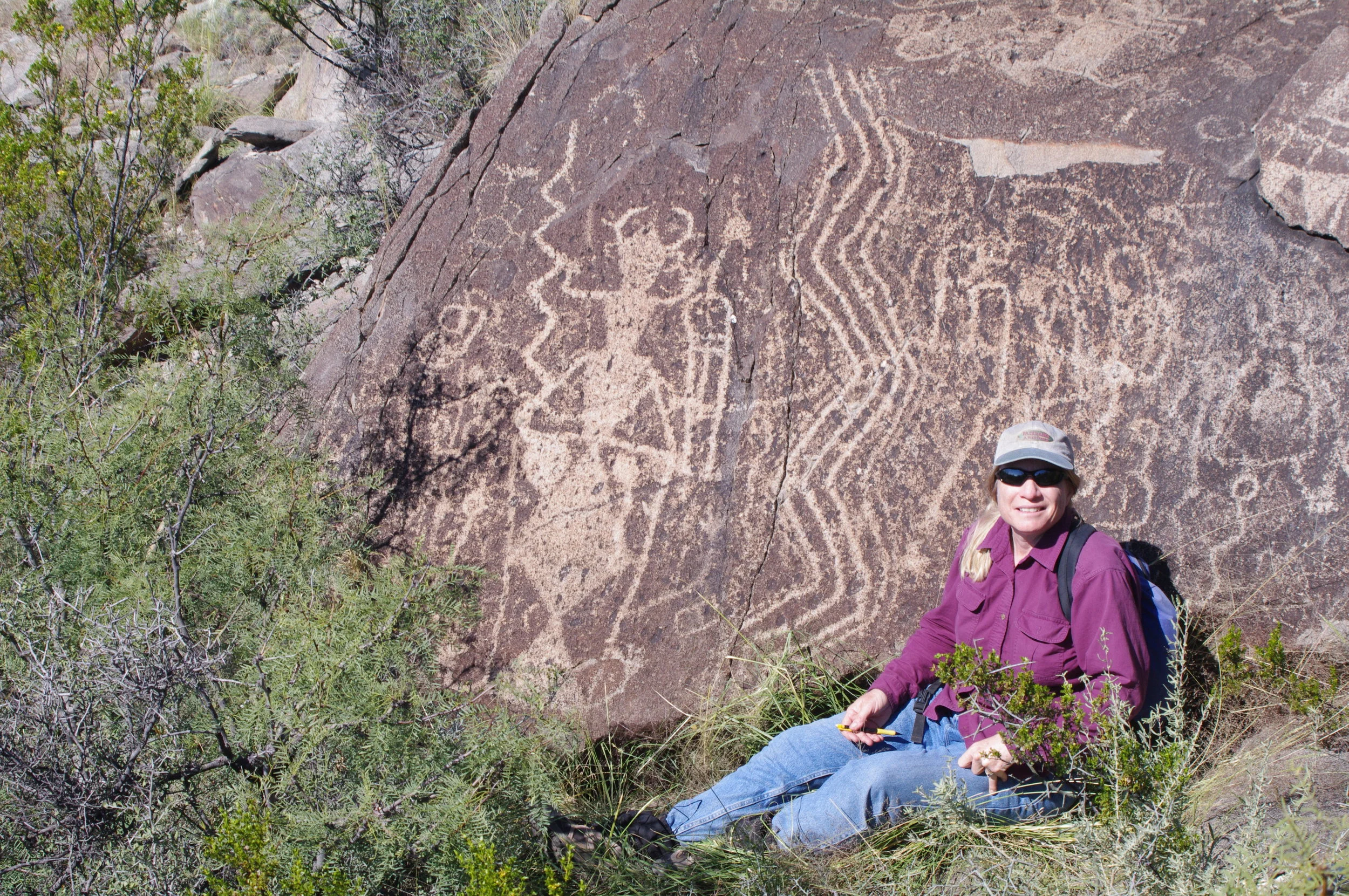Recent research provides evidence of ancestral Apaches in the southern Southwest at least as early as the A.D. 1300s. Some of this evidence comes from chronometric dates obtained from a feature type that comparative ethnographic information (including rarely used land claims documents) indicates were used for storage. These features, called platform caches, provide rare and ideal material for accurate dating because they are often covered with grass or leaves. Dates from these features, on Apache pottery, and from roasting pits, all in direct association with Apache material culture of other types (including rock art), provide a continuous sequence of use from at least as early as the A.D. 1300s through the late 1700s. New information about a western route south to this region is combined with other evidence regarding the presence of the earliest ancestral Apache three centuries earlier than many have argued, even in areas where Coronado did not see them.
Deni Seymour
Dr. Deni Seymour is internationally recognized for her work on protohistoric and historic Native American and Spanish colonial archaeology, ethnohistory, and anthropology. For over 30 years she has studied the ancestral Apache, Sobaipuri-O’odham, and the contemporaneous lesser-known mobile groups (Jano, Jocome, Manso, Suma, and Jumano). She has excavated two Spanish-period presidios (Santa Cruz de Terrenate and Tubac), numerous Kino-period mission sites, and several indigenous sites of the period. She works with indigenous groups in validating their heritage and dabbles in Coronado and Niza expedition archaeology. As an award-winning author with over 100 journal publications and six scholarly books she is rewriting the history of the pre-Spanish and colonial period southern Southwest. She received her doctorate and MA degrees in Anthropology from the University of Arizona in 1990 and her BAs with honors in both Anthropology and Environmental Studies from the University of California, Santa Cruz in 1980. She has taught, was employed by a number of state and federal agencies, and has worked for a number of cultural resource management firms, including one she founded and directed. Now she is a full-time research archaeologist affiliated with two academic institutions and the nonprofit research group Jornada Research Institute and she serves on the boards of three non-profit organizations.











